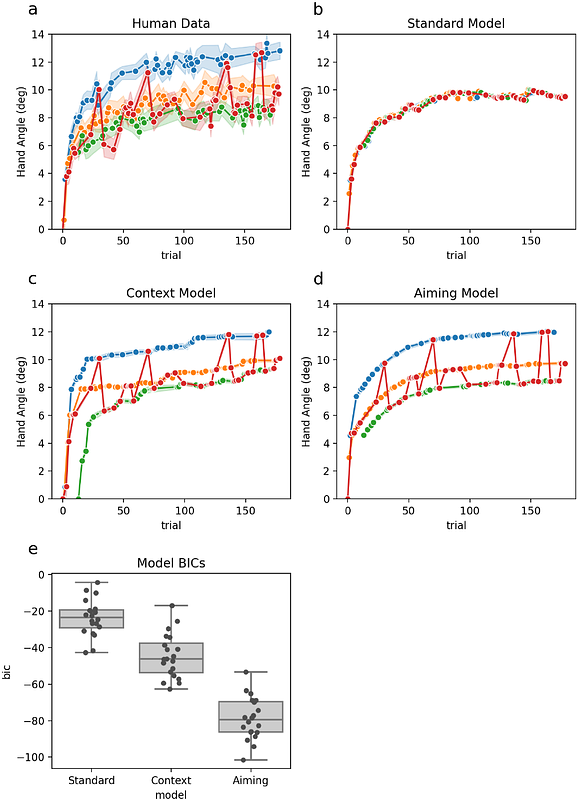Context versus aiming in motor learning when both feedforward and feedback control processes are engaged

Context versus aiming in motor learning when both feedforward and feedback control processes are engaged
Crossley, M. J.; Hewitson, C. L.; Kaplan, D. M.
AbstractTheories of human motor learning commonly assume that movement plans are adjusted in response to the precision of sensory feedback received regarding their success. However, support for this assumption has mainly come from experiments that limit feedback correction during an ongoing movement. In contrast, we have recently shown that when this restriction is relaxed, and both within-movement and between-movement corrections can occur, movement plans undergo large and abrupt changes that are strongly correlated with the degree of sensory uncertainty present on the previous trial and are insensitive to the magnitude and direction of recently experienced movement errors. A class of models in which sensory uncertainty influences an aiming process with no retention from one trial to the next best accounted for these data. Here, we examine an alternative possibility that sensory uncertainty acts as a contextual cue to shunt motor learning and control to one of many context-specific internal models. Although both aiming and context models provide good fits for our data, the aiming model performed best.